Free Teaching Resources for the Entire KS4 English Curriculum

Cover reading, writing, grammar, vocabulary and spoken English with this huge collection of free resources that will help prepare your students on the road to GCSEs…

- by Teachwire
- Classroom expertise and free resources for teachers
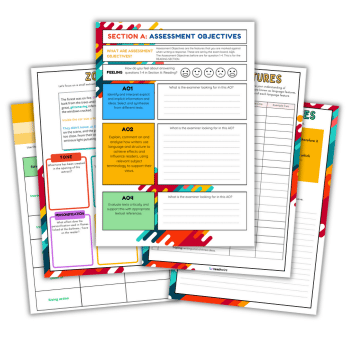
English Language Paper 1 revision booklet
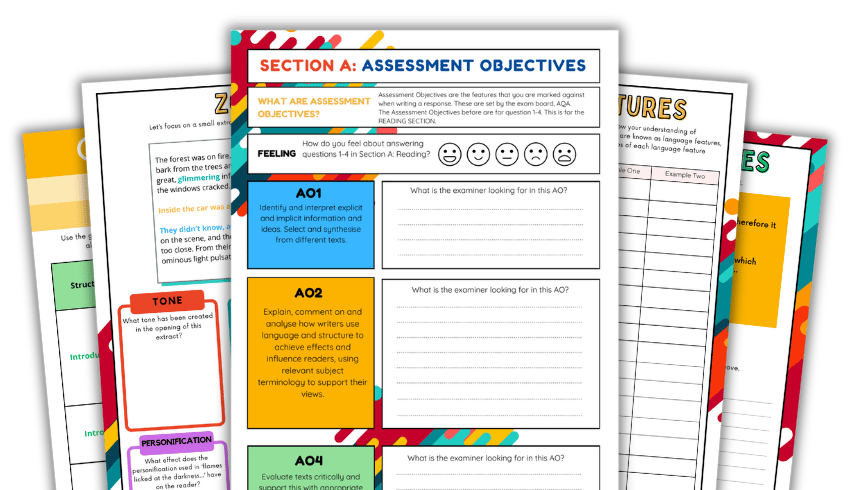
This free, 70-page, teacher-made AQA English Language Paper 1 booklet will help your students revise each question on this particular paper. Its bright and appealing design will appeal to your pupils. We also have an AQA English Literature Paper 1 revision resource.
Reading – Part 1
Curriculum
Read and appreciate the depth and power of the English literary heritage through:
- Reading a wide range of high-quality, challenging, classic literature and extended literary non-fiction, such as essays, reviews and journalism. This writing should include whole texts. The range will include:
- At least one play by Shakespeare
- Works from the 19th, 20th and 21st centuries
- Poetry since 1789, including representative Romantic poetry
- Re-reading literature and other writing as a basis for making comparisons
- Choosing and reading books independently for challenge, interest and enjoyment
Resources
1 | Non-fiction starter/plenary pack
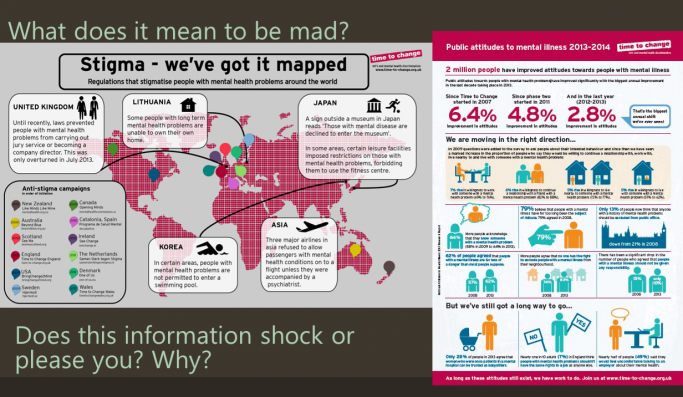
A selection of articles to take a thematic approach to 19th- and 21st-century non-fiction and some thematic starters/plenaries.
2 | Post-1914 play activities on David Calcutt’s Dracula
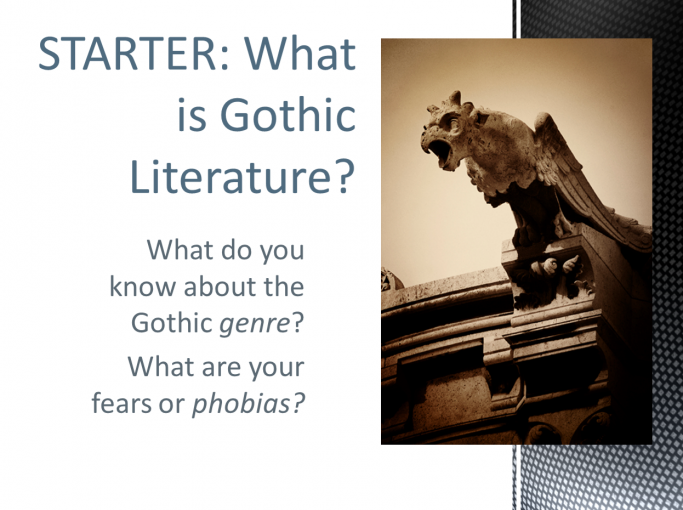
These PowerPoints and worksheets are for use as part of a unit of study using a Post-1914 play. The play used is David Calcutt’s adaptation of Dracula.
3 | Unseen poetry mock GCSE exam review
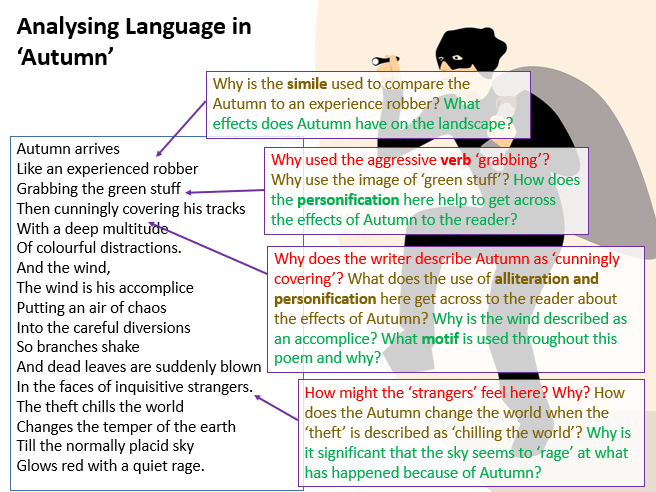
A fully differentiated lesson that looks at a Paper 2-style AQA GCSE English Literature unseen poetry questions for ‘Autumn’ by Alan Bold and ‘Today’ by Billy Collins.
It reviews the presentation of autumn and spring in both poems, as well as their use of language and structure, before students review their own answers and then self-assess each other’s work.
4 | Unseen poetry comparison activity
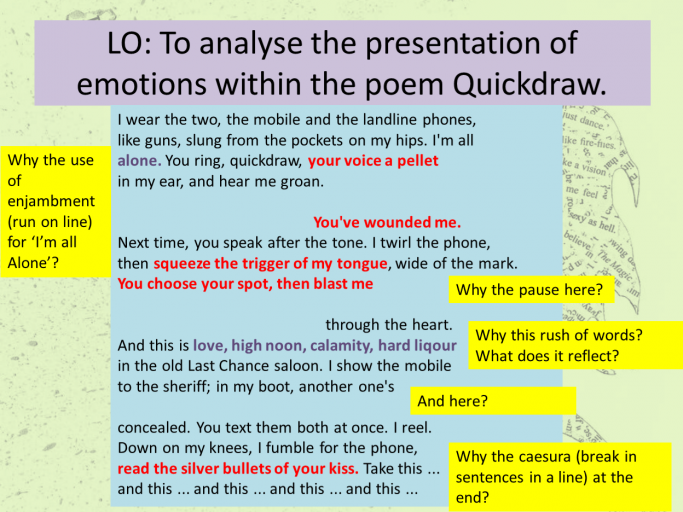
This is ideal for preparing KS4 for unseen poetry, or revising the skills required.
5 | Analytical writing using Romeo and Juliet
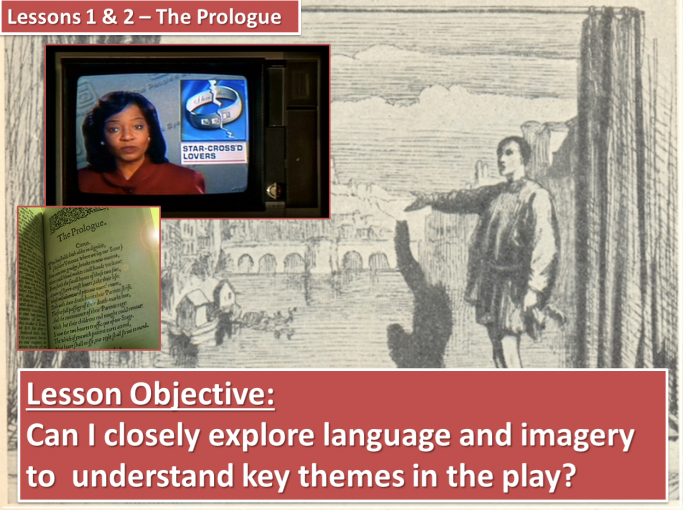
A short unit of work in which students watch Romeo + Juliet (1996) before looking closely at the text.
The second part of the scheme of work has students thinking carefully about how they write analytically about Shakespeare and develops their essay-writing skills.
6 | Love poetry transition unit
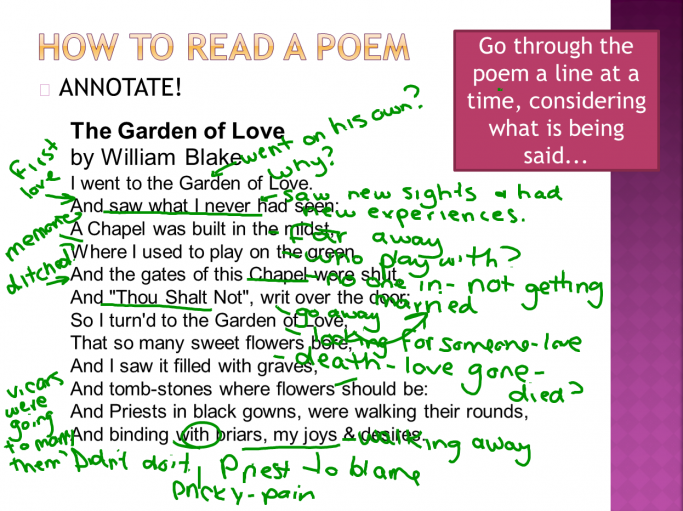
The following resources were created as part of a transition unit at the end of KS3. It is meant to revise skills for reading, annotating and analysing poetry in preparation for the new WJEC English spec.
Skills studied in this unit are meant to aid in critical analysis and essay writing.
7 | Impulsive behaviour in Romeo and Juliet
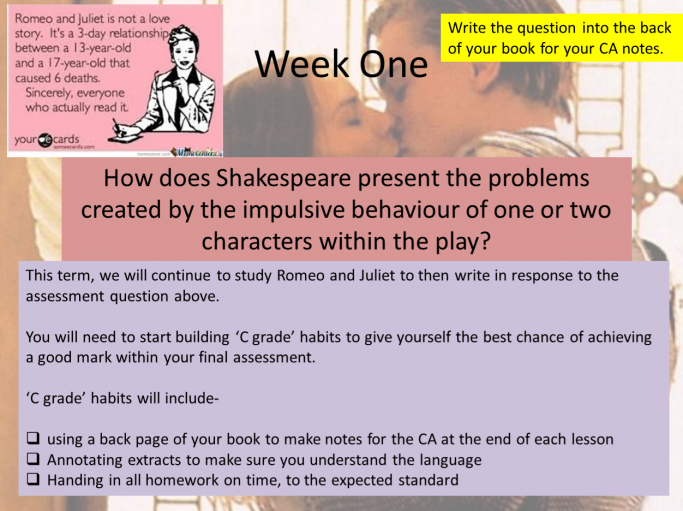
This is a series of lessons that work towards a controlled assessment question to consider the impulsive behaviour of Romeo and Juliet, and the impact of this upon the audience.
8 | How to create a reading culture in your school
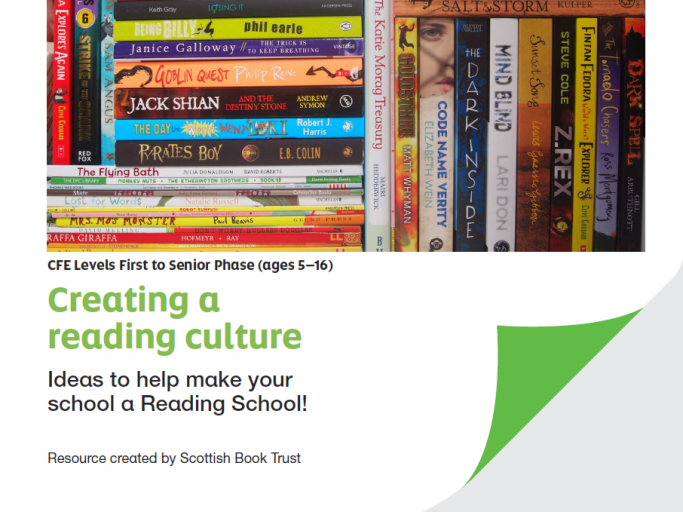
These resources were written to support teachers with activity ideas – they are a great way in to creating a school culture where everyone celebrates reading for pleasure.
Whether you want to embed some quick-but-effective changes, or you want to hold a school-wide reading celebration, these ideas will give you a great starting point.
9 | Much Ado About Nothing scheme of work
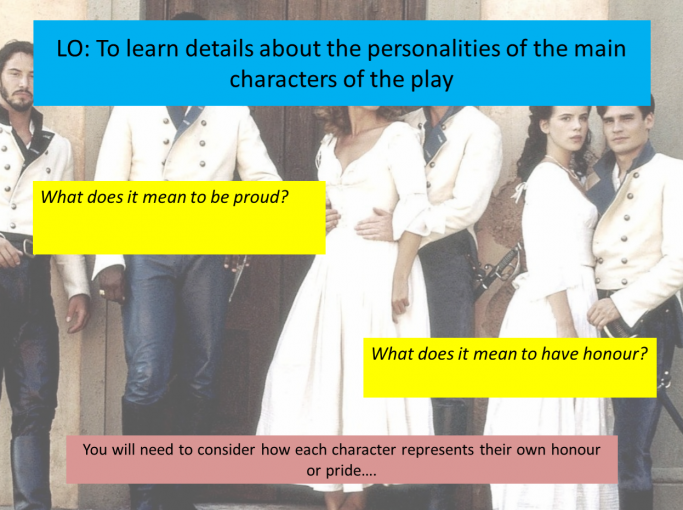
Created for high attainment Y9 working at GCSE level, this contains student-led week of work with resources, and includes a writing and reading assessment within scheme content.
10 | Conflict / war poetry scheme of work
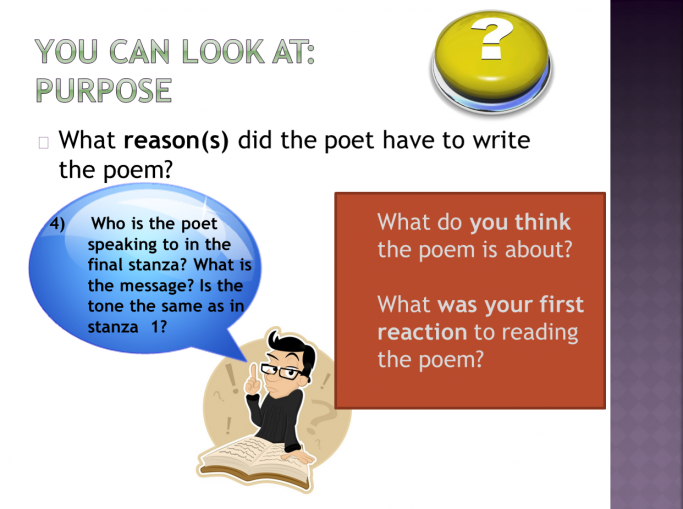
A large resource containing a scheme of work for conflict / war poetry.
It has PowerPoint lesson presentations and student activities, and includes a reading assessment and creative assessment.
11 | Unseen poetry scheme of work
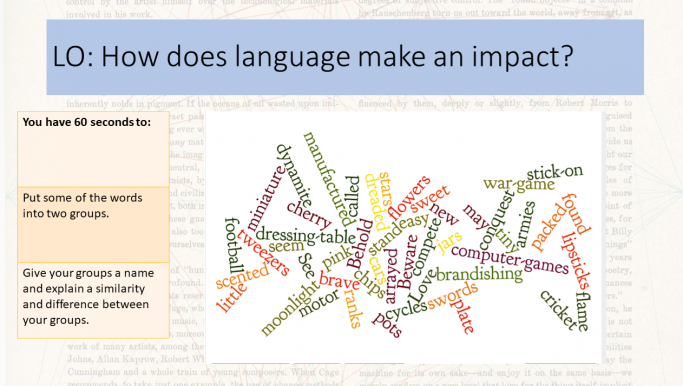
This is a unit of work for WJEC unseen poetry, which is fully resourced.
12 | Macbeth coursework scheme of work
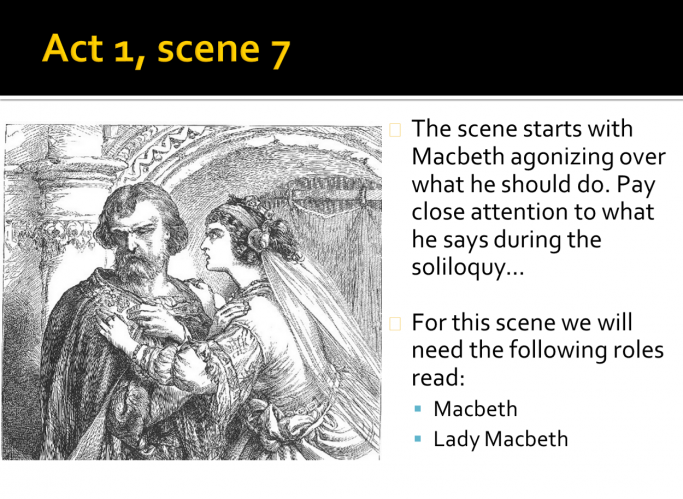
These PowerPoint presentations are meant to aid in teaching Macbeth to GCSE students. They are complete lessons introducing themes and analysing the play.
13 | National Theatre: On Demand
On the National Theatre’s award-winning streaming video service for schools you’ll find a selection of acclaimed productions available to stream in your classroom, each recorded in high definition in front of a live theatre audience.
Free to use, the recordings are available on demand and require no special software. The plays are supported by comprehensive resources created by teachers and leading artists.
Reading – Part 2
Curriculum
Understand and critically evaluate texts through:
- Reading in different ways for different purposes, summarising and synthesising ideas and information, and evaluating their usefulness for particular purposes
- Drawing on knowledge of the purpose, audience for and context of the writing, including its social, historical and cultural context and the literary tradition to which it belongs, to inform evaluation
- Identifying and interpreting themes, ideas and information
- Exploring aspects of plot, characterisation, events and settings, the relationships between them and their effects
- Seeking evidence in the text to support a point of view, including justifying inferences with evidence
- Distinguishing between statements that are supported by evidence and those that are not, and identifying bias and misuse of evidence
- Analysing a writer’s choice of vocabulary, form, grammatical and structural features, and evaluating their effectiveness and impact
- Making critical comparisons, referring to the contexts, themes, characterisation, style and literary quality of texts, and drawing on knowledge and skills from wider reading
Resources
14 | Analysing narrative structure in novels and film
_683_510_int_c1.png)
This is a fully differentiated and resourced lesson that focuses on the opening and closing of narrative pieces, analyses the use of a cyclical structure in a text and asks students to evaluate a text or film they are familiar with.
15 | Quotation planning tests for GCSE English literature papers
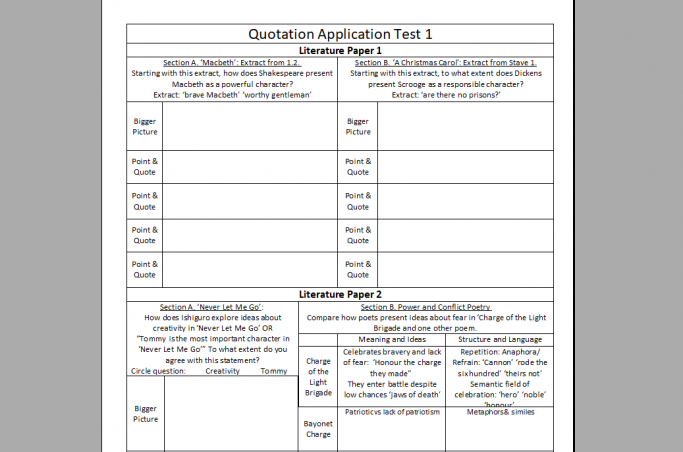
A 15-20 minute activity getting students to plan an answer to section A and B of both Literature papers.
16 | Sugar tax reading comprehension activities
_683_411_int_c1.png)
This is an easy-to-use reading comprehension pack with three sections of differentiated questions.
This activity focuses on the rights and wrongs of the sugar tax. It can be used in form time as part of literacy focus, or in an English lesson for KS3/4 GCSE comprehension training.
17 | Reading analysis ‘unstuck’ guides
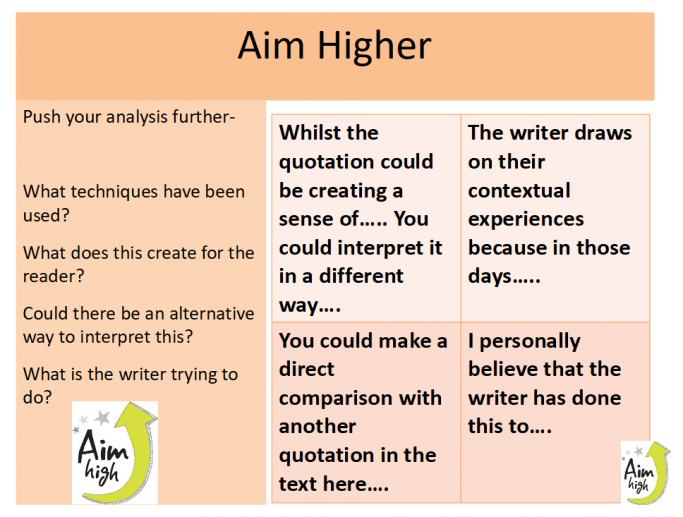
Differentiated for more- or less-able students. Comparison stem sentences in addition.
18 | Reading skills ladder
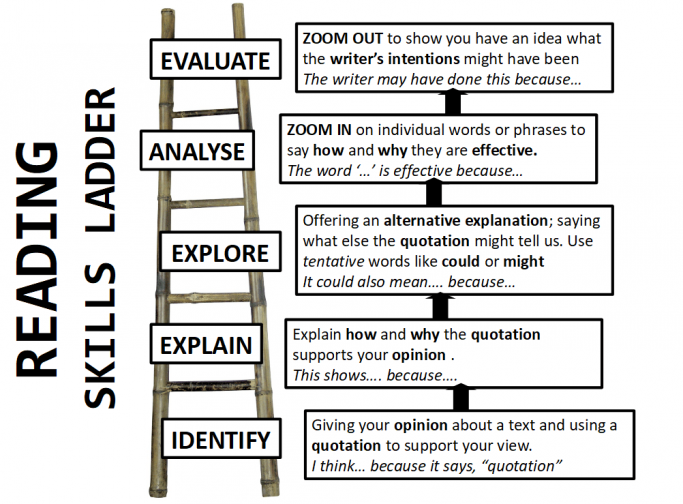
A taxonomy of skills to develop students’ reading.
19 | Tattoos differentiated reading comprehension activity
_683_473_int_c1.png)
This easy-to-use reading comprehension pack has three sections of differentiated questions. This activity focuses on the debate around tattoos and the prejudices many have against them.
20 | Susan Boyle on Britain’s Got Talent GCSE reading activity
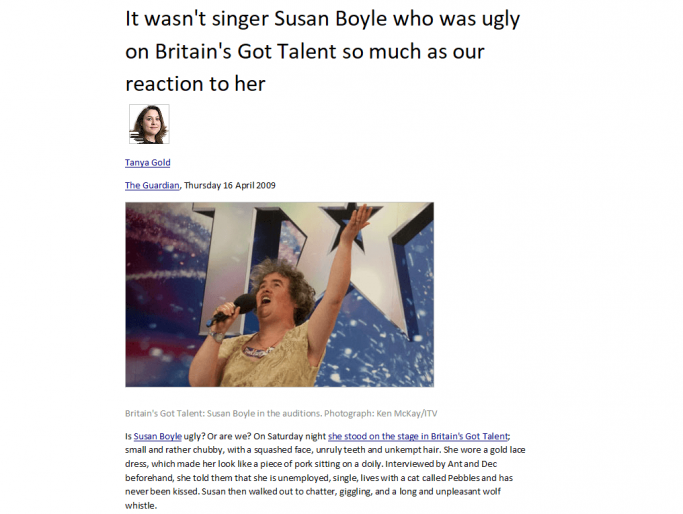
Trending
This lesson was created to help revise for ‘attitude’ questions for WJEC English Language reading paper.
21 | Strange Case of Dr Jekyll and Mr Hyde GCSE revision guide
_683_460_int_c1.png)
This in-depth Jekyll and Hyde revision guide for GCSE is full of differentiated activities, quotes, themes, symbolism and context analysis.
22 | An Inspector Calls context and setting analysis
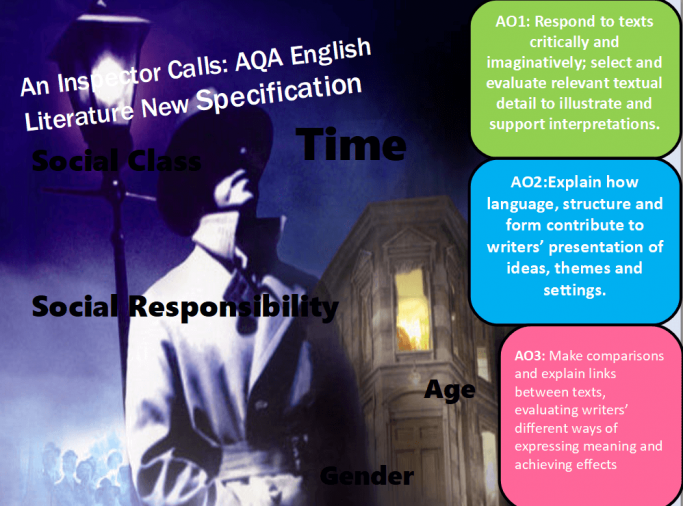
A lesson covering the context of when the play was written and set. Differentiated resources throughout linked to AQA AOs.
23 | “Alternative facts” differentiated reading comprehension activity
_683_462_int_c1.png)
This is an easy-to-use reading comprehension pack with three sections of differentiated questions.
This activity focuses on Donald Trump and all the crazy/interesting events of his presidency. It can be used in form time as part of a literacy focus, or in an English lesson for KS3/KS4 GCSE comprehension training.
24 | A Christmas Carol quotations and themes worksheet
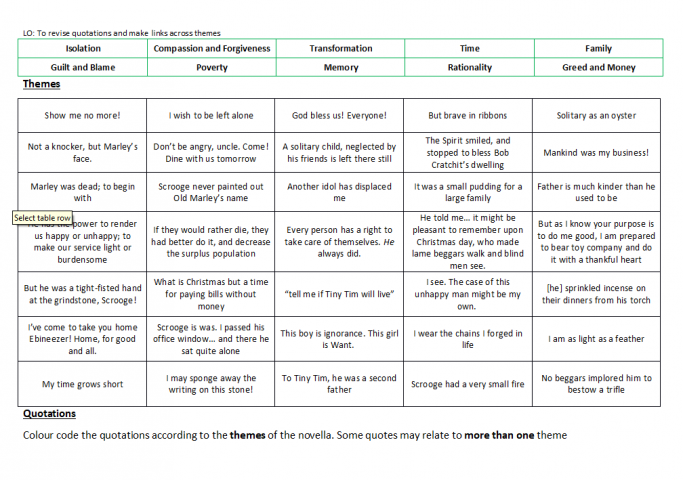
A simple worksheet designed to help students revise key quotations and allow them to independently match to themes of the novella.
25 | Analysing the effects of language activity
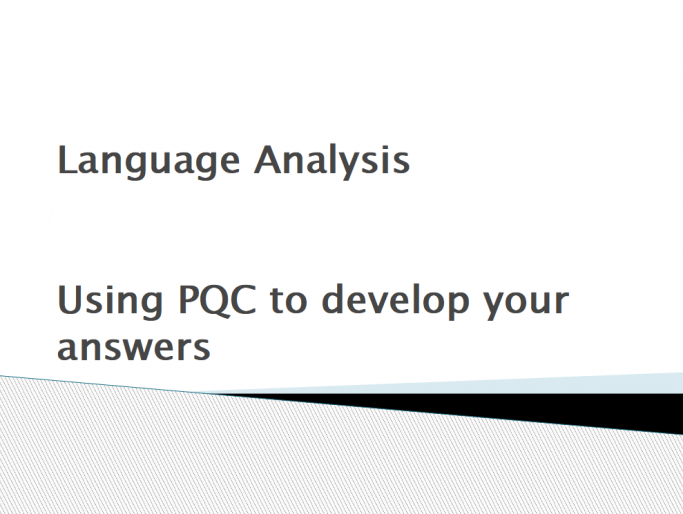
How to write an answer commenting on the effects of language used in a passage. This is aimed at students writing the CIE IGCSE First Language English exam, specifically Paper 2 Question 2.
26 | Crime and punishment language analysis lesson
_683_510_int_c1.png)
A fully resourced and differentiated lesson that helps students to approach AQA English Language Paper 2 Q3, which focuses on language analysis.
Ideal preparation for both KS3 and KS4 students getting ready for Writers’ Viewpoints and Perspectives.
Writing
Curriculum
Write accurately, fluently, effectively and at length for pleasure and information through:
- Adapting their writing for a wide range of purposes and audiences: to describe, narrate, explain, instruct, give and respond to information, and argue
- Selecting and organising ideas, facts and key points, and citing evidence, details and quotation effectively and pertinently for support and emphasis
- Selecting, and using judiciously, vocabulary, grammar, form, and structural and organisational features, including rhetorical devices, to reflect audience, purpose and context, and using Standard English where appropriate
Make notes, draft and write, including using information provided by others [eg writing a letter from key points provided; drawing on and using information from a presentation]
Revise, edit and proof-read through:
- Reflecting on whether their draft achieves the intended impact
- Restructuring their writing, and amending its grammar and vocabulary to improve coherence, consistency, clarity and overall effectiveness
- Paying attention to the accuracy and effectiveness of grammar, punctuation and spelling
Resources
27 | Sweet shop descriptive writing activity
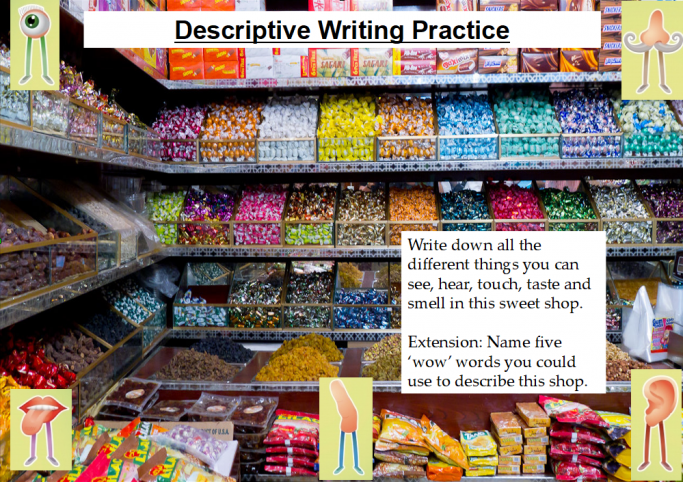
An easy-to-use lesson with differentiated worksheets that allows students to practise their descriptive writing skills. Useful for more able KS3 groups or weaker KS4 classes. It includes scaffolded examples, work banks and example techniques to include.
28 | Writing the middle part of stories and narratives
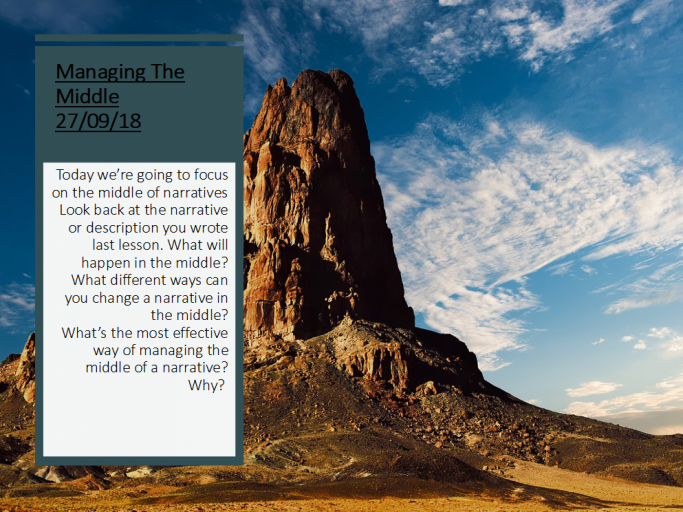
A fully differentiated and resourced lesson to aid students at KS3 and KS4 with writing the middles of narratives and stories. This is excellent preparation for GCSE writing exams.
29 | Creative writing organiser
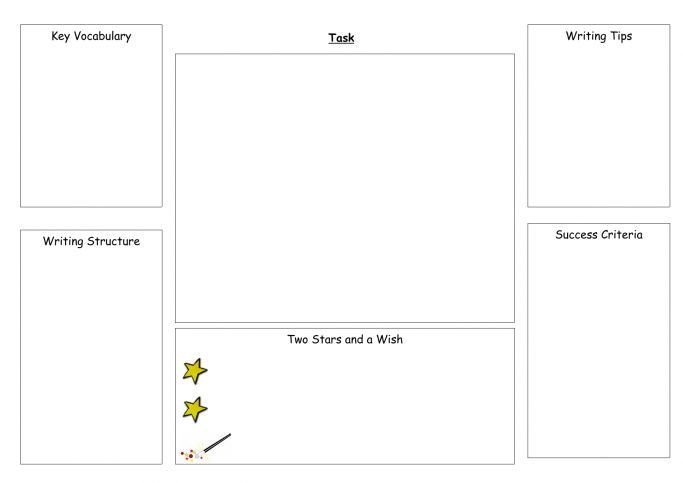
A simple graphic organiser to arrange and order students’ ideas. Download includes PDF and Word doc versions.
30 | The versatility of verbs SoW
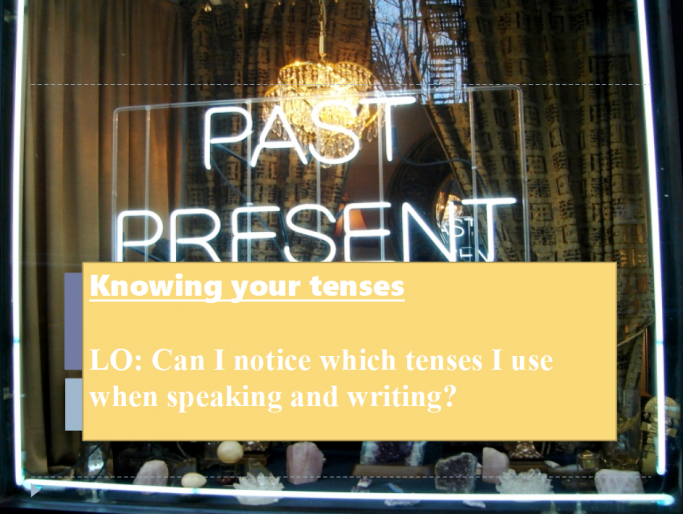
Paying specific attention to verbs, the purpose of this unit is to support the creation of a more-academic style of writing from students.
31 | Writing to describe – Homelessness (Part 1)

The focus of the unit is around issues of homelessness, so accompanying the unit is a class reading of Robert Swindell’s novel Stone Cold.
The assessment, however, isn’t on Stone Cold, but is on a creative writing piece, that uses description (so not narration) to describe a homeless person in Cambridge (but this can be changed to any city or town, really). The novel is merely being read to them so that they can use it to help them feel empathy etc.
32 | Writing to describe – Homelessness (Part 2)

The second part of lessons, for this unit on descriptive writing. The assessment involves students creating a piece of descriptive writing about a homeless person in a big city (Cambridge specifically here, but you can change this).
Grammar & Vocabulary
Curriculum
Consolidate and build on their knowledge of grammar and vocabulary through:
- Studying their effectiveness and impact in the texts they read
- Drawing on new vocabulary and grammatical constructions from their reading and listening, and using these consciously in their writing and speech to achieve particular effects
- Analysing some of the differences between spoken and written language, including differences associated with formal and informal registers, and between Standard English and other varieties of English
- Using linguistic and literary terminology accurately and confidently in discussing reading, writing and spoken language
Resources
33 | Verbs for analysis
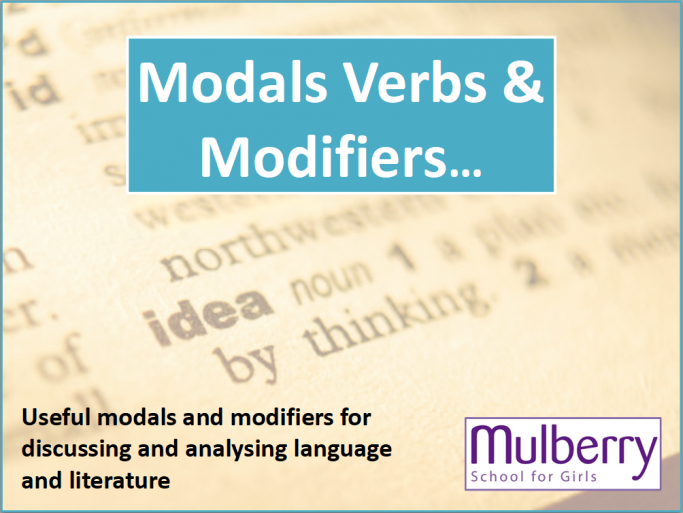
This is an analytical word bank to aid students’ spoken and written analysis of language and literature.
It includes differentiated lists for Key Stage 3 groups, and definitions of more unusual words with examples of them in use.
There are also lists of modal verbs and modifiers which are useful for discussion and analysis, often in conjunction with analytical verbs.
34 | Analysing language at word level
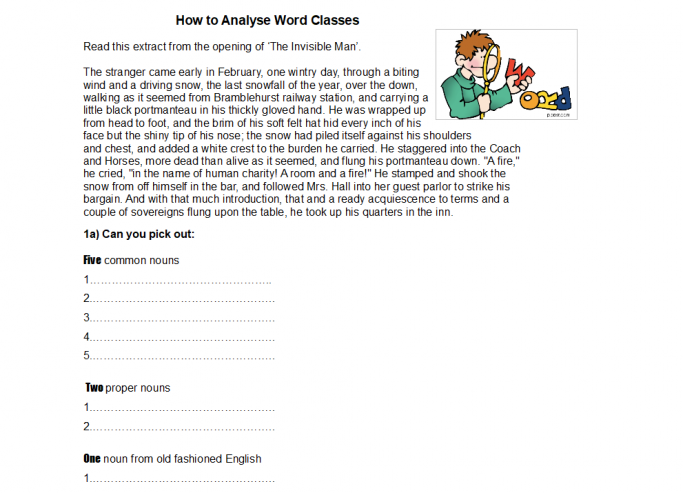
An activity to encourage GCSE English Language students to focus on close analysis at word level. Also a good revision of key grammatical terminology.
Spoken English
Curriculum
Speak confidently, audibly and effectively, including through:
- Using Standard English when the context and audience require it
- Working effectively in groups of different sizes and taking on required roles, including leading and managing discussions, involving others productively, reviewing and summarising, and contributing to meeting goals/deadlines
- Listening to and building on the contributions of others, asking questions to clarify and inform, and challenging courteously when necessary
- Planning for different purposes and audiences, including selecting and organising information and ideas effectively and persuasively for formal spoken presentations and debates
- Listening and responding in a variety of different contexts, both formal and informal, and evaluating content, viewpoints, evidence and aspects of presentation
- Improvising, rehearsing and performing play scripts and poetry in order to generate language and discuss language use and meaning, using role, intonation, tone, volume, mood, silence, stillness and action to add impact
Resources
35 | Love and hate – Spoken language GCSE prep
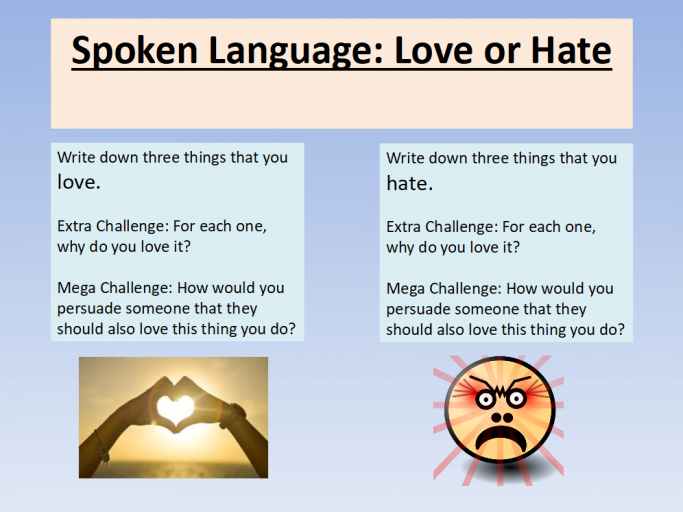
A differentiated lesson that helps students to prepare for the Spoken Language element of the new AQA English Language specification.
The topic focuses on love and hate, with students selecting one thing they love or hate to talk about.
36 | Introduction to debate

A short scheme of work on debating, produced for Key Stage 3 students.
Lessons focus on what debate is and why it occurs, rhetorical strategies for arguing and persuading, debate structure and debate delivery.
Also included are motions for debate, as well as arguments that might be used to respond to these motions.
37 | Unseen poetry SoW
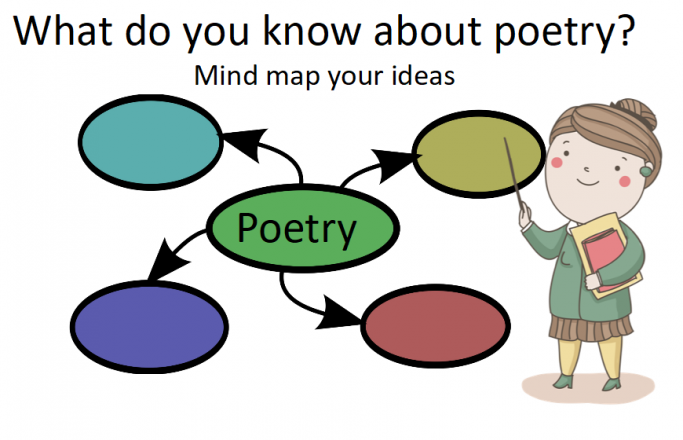
This SOW aims to prepare students for section C of the AQA GCSE English Literature paper 2.
Students are taught how to analyse language, structure and form of unseen poems using differentiated resources and extension tasks.
Browse great ideas to help with GCSE English Language revision.










